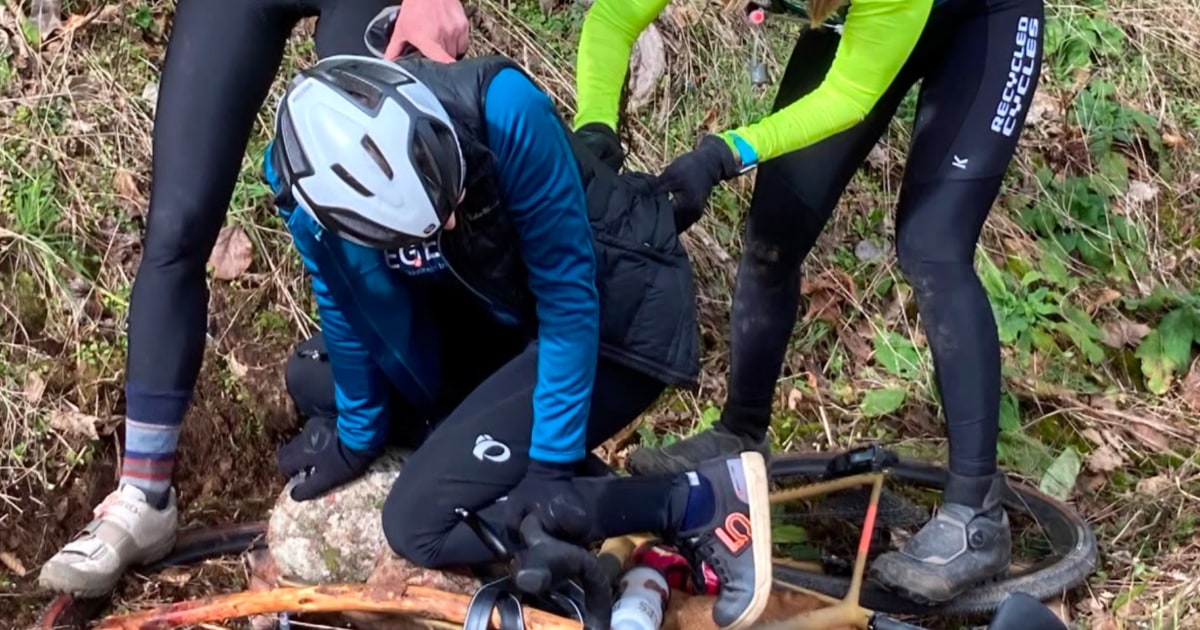The cat dialed back pressure through its crushing jaws, and the friend was able to pull away, fellow cyclists said in an interview one month after the incident east of Seattle.
A group of Seattle-area cyclists who helped one of their own escape the jaws of a cougar recounted their story this weekend, saying they fought the cat and pinned it down.
The woman who was attacked, Keri Bergere, sustained neck and face injuries and was treated at a hospital and released following the Feb. 17 incident on a trail northeast of Fall City, the Washington Department of Fish and Wildlife said in a statement.
Bergere said she spent five days at an area hospital and was still recovering.
Fish and Wildlife Lt. Erik Olson called the actions of her fellow cyclists “heroic” in the statement. But the extent of the cyclists’ battle with the 75-pound cat wasn’t immediately clear then.



That’s not how predators work. Predators are extremely vulnerable to starvation due to injury. If a predator attacks a creature that’s too large or strong it has a chance to be injured during the kill. This then reduces it’s ability to hunt which could directly lead to starvation.
Predators rarely attack creatures they aren’t familiar with or are close in size to them for this reason. There are some exceptions here with pack predators like wolves and hyenas but solo hunters like pumas won’t usually attack a human. Humans are not pumas regular prey and they are far too big to safely dispatch. There are also exceptions as noted above for illness or desperation.
For instance: Grizzly Man died due to a bear attacking him that was more aggressive due to food scarcity:
Or they do it because you’re in their territory or protecting their young. Cougar attacks are not some super rare thing, there is a reason they have warnings all over the place. The more we are in their land, the more we start looking like meals as well.